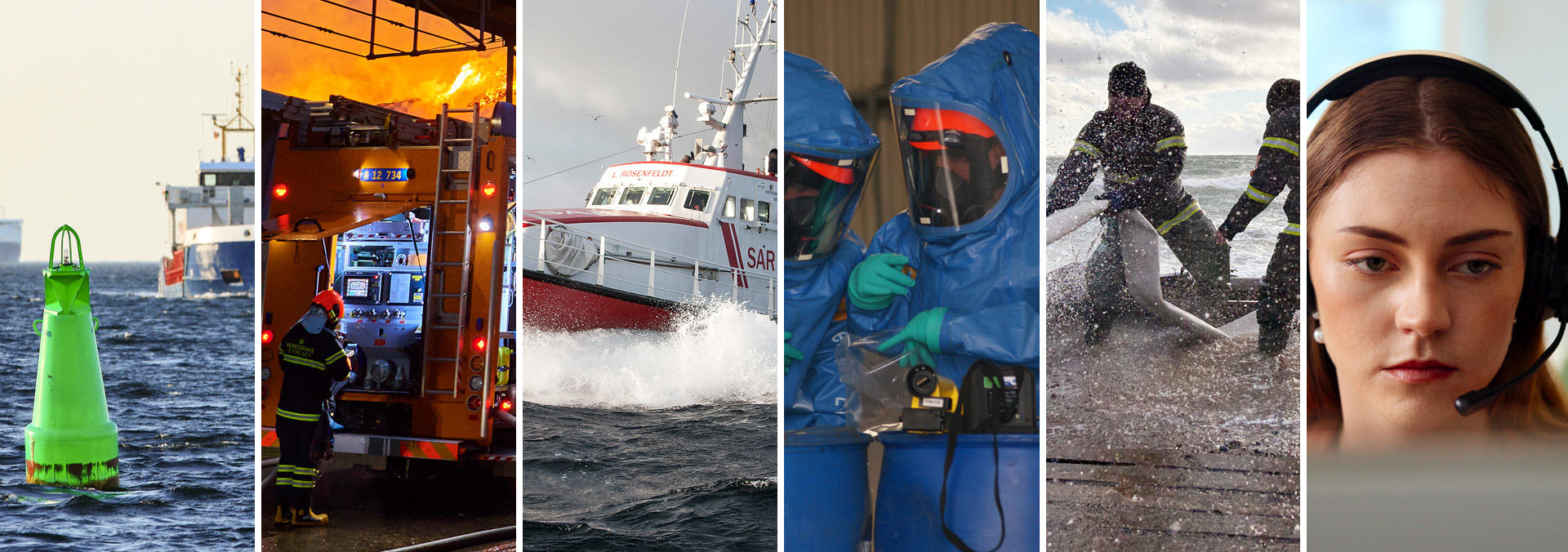Nyheder
Publikationer
Sociale medier
Presse
Hjælp os med at videreudvikle S!RENEN ved at svare på fem hurtige spørgsmål.
Klik her for at komme til spørgeskemaet i SurveyXact (nyt vindue) Test test test
Forebyggelse af ulykker og katastrofer
Indsats ved ulykker og katastrofer
Om krisestyring og redningsberedskabet
Vær klar når krisen rammer
Forebyg brand
Vil du arbejde i redningsberedskabet?
Assistance fra Beredskabsstyrelsen
Brandtekniske regler og brandsyn
Uddannelse
Krisestyring og beredskabsplanlægning
Viden, data og dokumentation
Dimensionering og indsats
Forebyggelse i redningsberedskabet
Transport af farligt gods
Brandfarlige virksomheder og oplag
Driftsmæssige brandkrav og brandsyn
Sådan arbejder du med forebyggelse af brand og andre ulykker

To nye undersøgelser viser, at Beredskabsstyrelsen fortsat har udfordringer i forhold til medarbejdere og særligt værnepligtige, der oplever episoder med kønskrænkende adfærd.

Beredskabsstyrelsen og Danske Beredskaber opfordrer til at rydde op omkring hjemmet før nytårsaften, da det kan hjælpe til at nedbringe antallet af udrykninger for brandvæsenet.

En ny aftale mellem Beredskabsstyrelsen og det tyske katastrofeberedskab (THW) sikrer hurtigere og mere effektiv assistance på tværs af den dansk-tyske grænse.

Den 4. og 5. november 2025 testede Beredskabsstyrelsen brand i solcellepaneler. Ny film giver et visuelt indblik i forløbet.
Vi bruger cookies til statistik for at forbedre brugervenligheden på hjemmesiden. Oplysningerne er anonyme og bliver ikke koblet til dig som bruger, men det er stadig dit valg, om du vil lade dine data indgå i statistikken.
Læs mere om cookiesNødvendige (vis detaljer)
Systemcookies | Nødvendige
Intern statistik (vis detaljer)
Siteimprove
Tredjeparts (vis detaljer)
Facebook | x | Google
Der findes enkelte cookies, som er nødvendige for at hjemmesidens system kan fungere. Ønsker du helt at udelukke muligheden for at der sættes cookies, skal du derfor slå cookies fra i din browser.
Navn: ASP.Net_SessionId og volumeControl_volumeValue
Udbyder: Systemcookies
ASP.Net_SessionId er en cookie, som bruges til at identificere brugerens session på web-serveren. Sessionen er et område på serveren, som kan bruges til at gemme sessionstilstand mellem http-anmodninger.
Udløb: Når sessionen udløber
Privatlivs politik: Vores cookiepolitik
Navn: necessaryCookie og cookiebanner
Udbyder: Nødvendige
NecessaryCookie sættes for at markere accept af nødvendige cookies.
Cookiebanner sættes for at gemme cookieindstillingerne.
Udløb: 30 dage
Privatlivs politik: Cookiepolitik
Siteimprove webanalyse-program opsamler en generel besøgsstatistik på vores hjemmeside. Vi har slået IP-anonymisering til. Det betyder, at din IP-adresse slettes med det samme efter den læses. Din IP-adresse kan dermed hverken spores eller genskabes i vores system. Statistikken anvendes udelukkende i opsummeret form, fx til at se hvor mange besøgende vi har, og hvilke sider der er mest besøgte.
Navn: nmstat og AWSALBCORS
Udbyder: Siteimprove
Disse cookies bruges kun under det aktuelle besøg. Der indsamles udelukkende ikke-personlig information omkring hvilke undersider der besøges. Formålet er at følge, hvor mange besøgende vi har, og hvilke sider der er mest besøgte.
Udløb: Op til 1.000 dage, men oftere kortere afhængig af browser.
Privatlivs politik: Siteimproves information
Vi bruger dele-funktion til sociale medier og indlejrede feeds, men du skal være opmærksom på, at du teknisk set forlader fmn.dk og er omfattet af det sociale medies datapolitik, når du klikker på en sådan funktion. Feeds og kortelementer vises kun for brugere, der accepterer cookies fra tredjepart.
Navn: Facebook
Udbyder: Facebook
Facebook datapolitik:
Denne politik beskriver de oplysninger, vi behandler for at understøtte Facebook, Instagram, Messenger og andre produkter og funktioner, der tilbydes af Facebook (Facebook-produkter eller produkter). Du kan finde flere værktøjer og oplysninger i Facebook-indstillingerne og Instagram-indstillingerne.
Udløb: Cookien udløber om 30 dage
Privatlivs politik: Facebook datapolitik
Navn: X
Udbyder: x
X s brug af cookies og lignende teknologier:
Vores tjenester bruger cookies og andre lignende teknologier, såsom pixels eller lokal lagring, til at hjælpe med at give dig en bedre, hurtigere og sikrere oplevelse. Her er nogle af de måder, hvorpå vores tjenester, herunder vores forskellige websteder, SMS, API'er, e-mail-meddelelser, applikationer, knapper, widgets og annoncer, bruger disse teknologier: at logge dig ind på Twitter og Periscope, gemme dine præferencer, tilpasse det indhold, du ser, beskytte mod spam og misbrug og vise dig mere relevante annoncer.
Udløb: Cookien udløber om 30 dage
Privatlivs politik: Twitters cookiepolitik
Navn: Google Maps
Udbyder: Google
Googles privatlivspolitik:
Når du bruger vores tjenester, betror du os dine oplysninger. Vi forstår, at det er et stort ansvar og arbejder hårdt på at beskytte dine oplysninger og give dig kontrol over dem.
Denne privatlivspolitik er beregnet som en hjælp til at forstå, hvilke oplysninger vi indsamler, hvorfor vi indsamler dem, og hvordan du kan opdatere, administrere, eksportere og slette dine oplysninger.
Læs mere hos udbyderen.
Udløb: Cookien udløber om 30 dage
Privatlivs politik: Google privacy policy